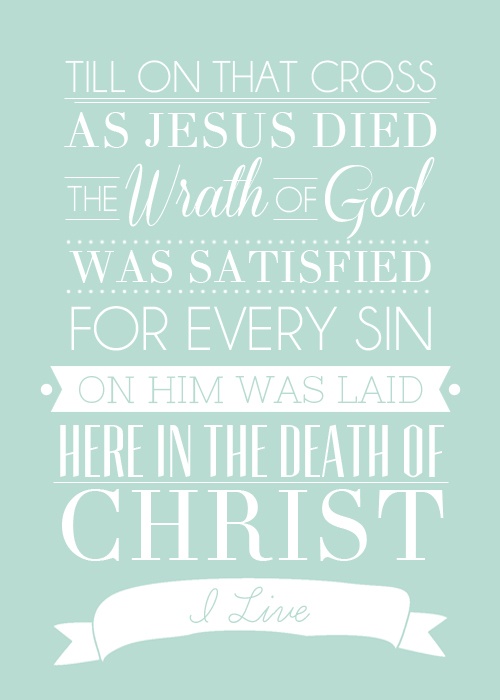

The uniqueness of Christ - the main theme of the hymn - is as politically incorrect as it is inescapable. One endearing aspect of this hymn’s theology is the willingness of the composers to weave truth into its fabric, which is utterly central to the gospel, despite the inevitable controversy. The song strikes a biblical balance: on the one hand, the objectivity of our salvation - achieved by God in Christ - and on the other hand the subjective, personal joy of the redeemed. Sin’s curse has lost its grip on me… No power of hell, no scheme of man, can ever pluck me from his hand. And yet, this hymn doesn’t gloss over the subjective wonder experienced by the soul saved by Christ. This song is about far more than what we feel. In a generation of Christian songs that are often merely subjective and sentimental, there is so much beautiful and objective truth here, as Christ’s person and work are displayed, and the security of our salvation is unfolded. If there’s a 21st-century musical manifestation of Solus Christus, surely this is it! It captures the joy of the redeemed The theology is utterly biblical and Reformed, in that it’s centred on Christ only. We are conducted through two millennia of history to the present day and then to that exquisite day when we will see Christ, ‘ when he returns or calls me home’. We are taken from Christ’s incarnation as helpless babe through the cross and resurrection to Jesus’ ascension to heaven.
#SONG IN CHRIST ALONE FULL#
It’s thoroughly Christocentricįor all its beguiling simplicity, the hymn’s biblical theology surveys the full scope of Jesus’ person and work and the full sweep of our salvation in Christ. Yet its doctrine isn’t shallow, and its message is profound. Its melody is instantly catchable and captivating, so it’s easy to learn and remember. In Christ Alone presents deep theology with short, simple, words. What is it about this now famous Townend-Getty composition that has made such an impact on the church? It’s been called the Amazing Grace of our generation is that a fair comparison? I think at many levels it is, and here are a few reasons why. It’s more that there was something significant about the song itself - its theology, its focus and its infectiousness - that causes me to vividly remember singing it, twelve years later. I don’t think I remember singing it because it was fairly new, or because of the spine-tingling experience of singing in unison with such a multitude, or even because this particular song was picked up and sung with unusual passion. I don’t recall much else at all (except that John Stott spoke to us too). I don’t remember the other songs we sang that day. I was standing in the Royal Albert Hall singing with thousands of other Christians, and I distinctly recall the song we were singing: In Christ Alone.


 0 kommentar(er)
0 kommentar(er)
